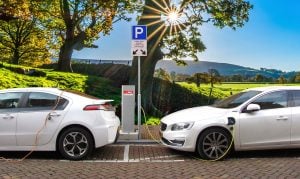By Cristian Bustos. Originally published at ValueWalk.

The European Union takes another step towards the end of vehicles with combustion engines. The European Parliament has supported Wednesday the proposal of the European Commission to ban the manufacture of new cars and vans that emit CO2 from 2035.
Milestone
According to the proposal, all lightweight vehicles should be from then on either electric or hydrogen-powered. Support for this measure, which aims to meet the goal of climate neutrality in 2050, was not entirely assured as conservatives and some liberals were betting on softening the goal.
Q1 2022 hedge fund letters, conferences and more
The 2035 date takes into account a 15-year transition period for industry adaptation. In fact, a good part of the manufacturers had already expressed themselves in favor or have even anticipated the legislation.
Volkswagen Group (ETR:VOW3), for example, already announced last summer that it would stop selling vehicles with combustion engines in Europe between 2033 and 2035.
However, the European People’s Party (EPP), the largest in the European Parliament, had opted to soften this veto. The ban on selling new cars and vans with hybrid and combustion engines (gasoline or diesel) in 2035 is linked to compliance with reducing CO2 emissions from new passenger cars by 100% by that date by proposing to lower this objective to 90%.
Goals
The conservative negotiator, Jens Gieseke, argued that the car industry must be able to innovate in the field of alternative fuels and assured that “the end of combustion engines could put up to 500,000 jobs at risk.”
The Greens, however, recall that 15% of all greenhouse gas emissions in the EU come from road transport. Also, during the debate, the vice president of the European Commission in charge of the Green Deal criticized that the EPP wants to make the European Union “go backward.”
There is the objective of stimulating the production, purchase, and use of electric vehicles to the maximum.
The European Commission has committed itself to enable up to 1 million charging points for electric vehicles in Europe in 2025, a figure that is still far from being achieved according to the latest report by the EU Court of Auditors, which counted 250,000 points in 2020.
Updated on
Sign up for ValueWalk’s free newsletter here.



